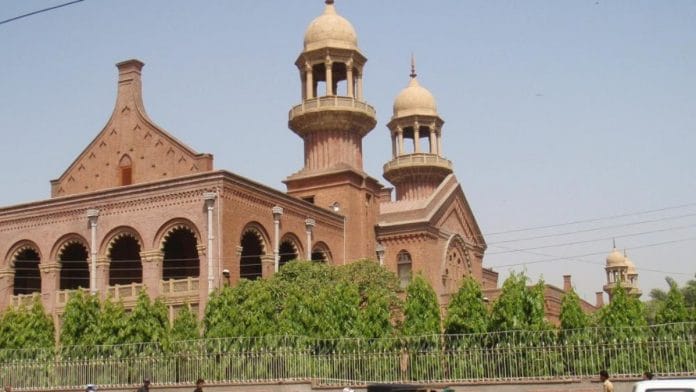Pakistan, which is marred by acute economic crisis and food shortages, made a historic leap toward democratic freedoms Thursday when a court annulled Section 124-A of the nation’s draconian colonial-era sedition law. An op-ed published in the country’s leading daily summed up what the move means for Pakistan— the order has given the country “something to genuinely cheer for”, which could prove a “watershed in Pakistan’s legal history.”
Justice Shahid Karim of the Lahore High Court (LHC) annulled Section 124-A of the Pakistan Penal Code (PPC) in response to identical petitions seeking to repeal the sedition law, Dawn reported.
“In more recent history, Pashtun Tahaffuz Movement leaders, such as Manzoor Pashteen, leftist leaders like Ammar Ali Jan, and assorted leaders of the PTI [Pakistan Tehreek-e-Insaf], such as Shehbaz Gill and Fawad Chaudhry, have faced detention under the same laws,” today’s Dawn article read.
The News International wrote in its editorial published today that the verdict should be welcomed “without any ifs or buts regarding such progressive jurisprudence.”
The law targeted everyone who dared to speak against injustices meted out by the government. “The petitions would not be wrong in that we have seen how – from Faiz Ahmad Faiz and Habib Jalib to Benazir Bhutto, Nawaz Sharif and Asif Ali Zardari to a whole set of journalists, activists, civil rights leaders – there is an unending list of people who have been charged under this law for having had the temerity to speak up against the power setup of the time,” The News International commented.
Also read:
Politicians, activists hail decision
While the representatives of the ruling government have not reacted, members of the Imran Khan-led PTI, several civil society members, journalists and lawyers welcomed the verdict on social media. Haqooq-e-Khlaq Movement’s (HKM) member, Ammar Ali Jan, said it was a colonial law used to suppress dissent, and he has personally faced sedition charges since 2019.
“It is a great movement for all who believe in freedom of expression,” he said.
Fawad Chaudhry said the petitioner, Abuzar Salman Khan Niazi, had done a “huge service to the nation”, while Shahbaz Gill called 124A “a tyranny”. Chaudhry was arrested in January this year under the same law on charges of sedition.
Activist Usama Khilji said the decision was much needed and long overdue.
“Abuse of the colonial era sedition law was undemocratic and undermined the fundamental right of freedom of speech. Glad it has been done away with as the establishment used it to persecute democratic criticism,” he tweeted.
Former PTI MP Ali Salman Siddique called it a “brave judgment” by “fearless” judge Shahid Karim.
The Pakistani government has defended the sedition law in the past by saying that “the section imposed a valid restriction to free speech as long as any spoken or written words have the intention or tendency to create disorder or disturb public peace by resorting to violence against the respective governments.”
Section 124A of the PPC described sedition as: “Whoever by words, either spoken or written, or by signs, or by visible representation, or otherwise, brings or attempts to bring into hatred or contempt, or excites or attempts to excite disaffection towards the federal or provincial government established by law shall be punished with imprisonment for life to which fine may be added, or with imprisonment which may extend to three years, to which fine may be added, or with fine”.
The Human Rights Commission of Pakistan also welcomed the decision and remarked that such laws are “remnants of an abusive colonial system that have regrettably continued to be used to criminalise political dissent.”
(Edited by Zoya Bhatti)






